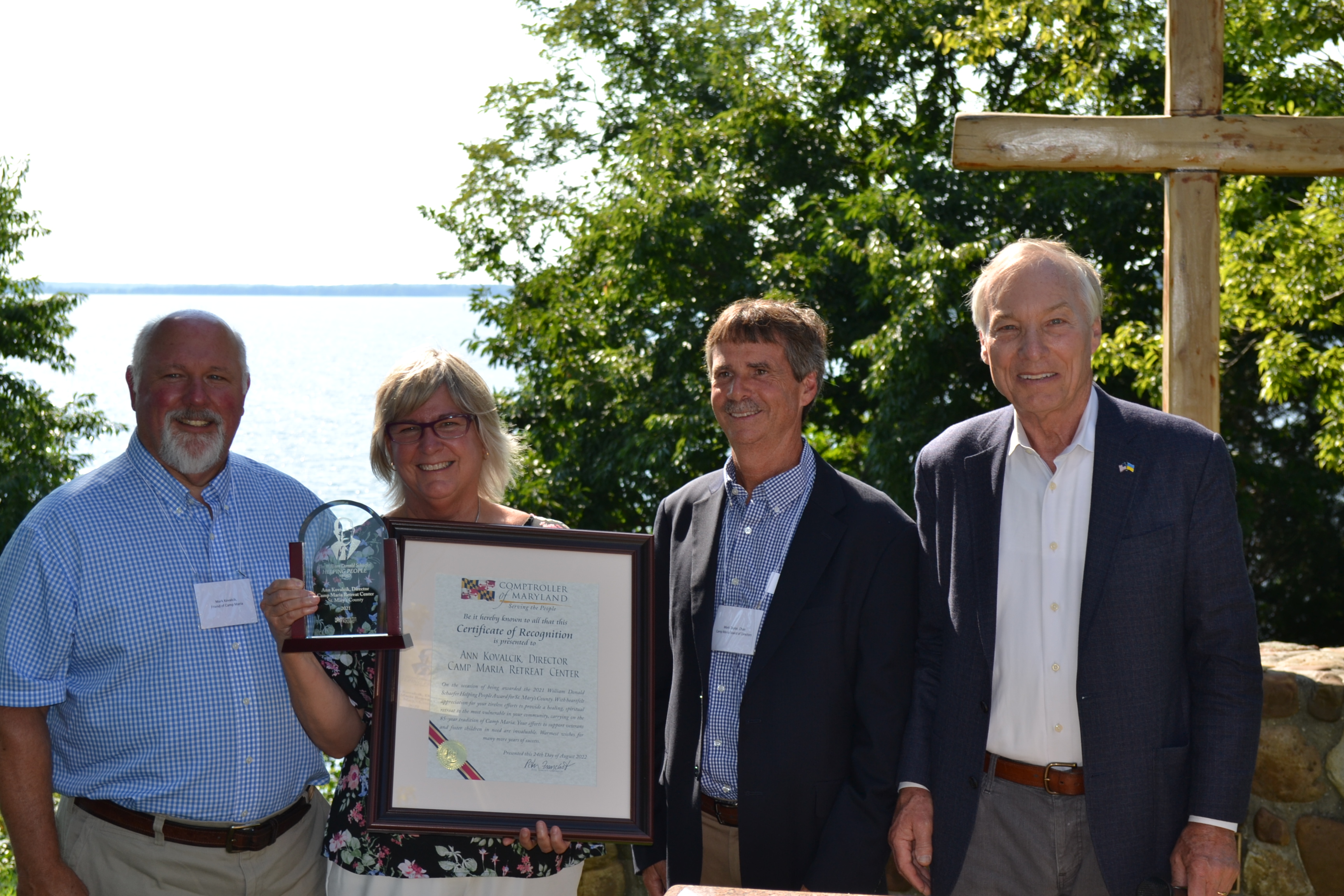Comptroller Biographies
Maryland's comptrollers were a diverse group from all parts of the Old Line State. Sixteen were from eight counties on the Eastern Shore, while 14 were from seven counties and Baltimore City on the Western Shore. The two youngest were 28 years old when they entered office while the oldest was 79. Two served in office until they reached 85 years of age.
Twenty-five have been Democrats and only two were Republicans while several before and during the Civil War were Whigs, Know-Nothings and Unionists. Several served in the Civil War on both sides and a few served in World Wars I and II.
A half-dozen were governors, many were in the General Assembly, and several held national office. Eighteen were lawyers, three were physicians and the rest have been newspaper editors, farmers, bankers and accountants, while one was a teacher and another a miner. Quite a few were influential businessmen in their local communities. Seven served a year or less and one served for 39 years. In fact, three individuals accounted for three-quarters of the last century. Three died while they were in office.
Biography of Brooke Lierman
Comptroller, State of Maryland
Brooke Lierman is the 34th Comptroller of the state of Maryland and the first woman to be independently elected to one of our state's constitutional offices. After running a strong, policy-focused and grassroots-led two-year campaign, she was elected with over 60% of the vote in November 2022. She is an attorney by training, practicing as a civil rights and disability rights lawyer for many years, and prior to her election as Comptroller, she served for 8 years a member of the House of Delegates representing part of Baltimore City.
While in the House, she spent time in leadership roles on both the Appropriations Committee and the Environment and Transportation Committee and chaired the Joint Committee on Pensions. Brooke successfully passed landmark legislation on a range of issues from transit and broadband to criminal justice reform and public education.
As Comptroller, she is leading an agency of 1,200 dedicated Maryland public servants in 12 offices around the state. Together and under her leadership, the office is working to create a Maryland that is more equitable, more resilient, and more prosperous so that all Marylanders can reach their full potential.
A native Washingtonian, Brooke grew up in Montgomery County and graduated from Dartmouth College. After participating in the AmeriCorpsVISTA program, working on several federal campaigns, and spending a year at the Center for American Progress, Brooke attended the University of Texas School of Law and then moved to Baltimore for a federal clerkship. Brooke lives in downtown Baltimore with her husband and two school-aged children who attend Baltimore City Public Schools. She is a lifelong Orioles fan.
Biography of Peter Franchot
Comptroller, State of Maryland - 2007-2022
Peter Franchot was elected Maryland's 33rd Comptroller on Tuesday, Nov. 7, 2006. Prior to his election to statewide office, Peter served 20 years in the Maryland General Assembly, representing the residents of Montgomery County. During his time in the Maryland House of Delegates, Franchot was a member of the Appropriations Committee and served as Chairman of the Transportation & the Environment Subcommittee. Throughout his career, he was a strong advocate for education, health care, transportation and environmental protection initiatives.
As Comptroller, Peter Franchot was an independent voice and fiscal watchdog for the taxpayers of Maryland. As a member of the powerful Board of Public Works and Vice-Chair of the State Retirement and Pension System of Maryland, Franchot worked tirelessly to keep Maryland competitive in the knowledge-based economy, create a climate of economic equality and opportunity, and protect Maryland's parks, waterways and open spaces. Franchot worked closely with business leaders throughout the State on issues that affect Maryland's economy and fiscal strength. In recognition of his work on behalf of Maryland taxpayers, the Association of Government Accountants awarded Comptroller Franchot their highest honor, the William R. Snodgrass Distinguished Leadership award.
As the State's chief fiscal officer, Franchot worked to level the playing field for Maryland taxpayers, cracking down on cigarette smugglers and illegal alcohol and motor fuel sales. He closed tax loopholes, launched the first-in-the-nation program to ensure that federal contractors are paying their fair share in State taxes, and sought statewide compliance with Maryland's minority business enterprise participation goals. Franchot was a strong advocate for the State's burgeoning life sciences industries and a leader in the fight to invest State resources in cost effective, environmentally-friendly "green" technologies.
Comptroller Franchot attended Amherst College (B.A., 1973) and Northeastern School of Law (J.D., 1978). He served in the United States Army, from 1968 to 1970. Peter is married to Anne Maher, a lawyer, and they have two children, Abigail and Nick. Peter and Anne live in Takoma Park, Maryland.
The William Donald Schaefer Helping People Award is presented by the Comptroller of Maryland to the individuals and organizations in each of the 23 counties and Baltimore City who best exemplify William Donald Schaefer's lifelong commitment to helping people.
Winners are selected based on their demonstration of:
- Improving the community
- Swiftly solving a citizen problem through effective government intervention
- Directly aiding the most vulnerable in society or
- Creating a public/private partnership to improve the lives of Marylanders
Comptroller Franchot and his team would like to thank all the nominees for their hard work and commitment to helping the under-served in their communities. Congratulations to all of the William Donald Schaefer Helping People Award recipients.
- Allegany County: Children's Literature Centre
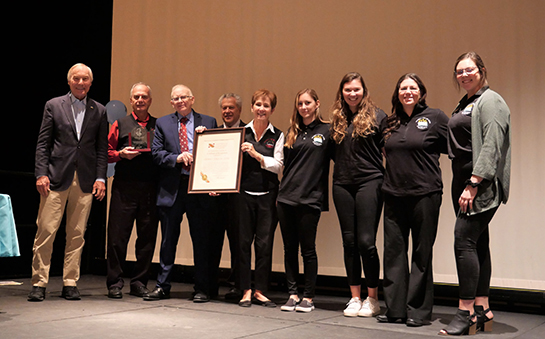
Click on the picture for larger view - Anne Arundel County: Curtis Gunny Jones
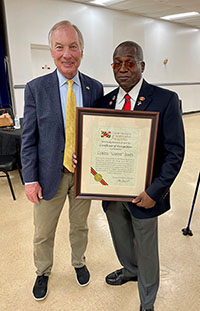
Click on the picture for larger view - Baltimore City: Project Waves
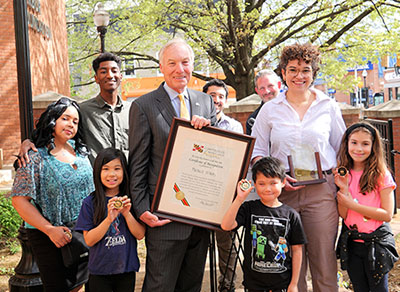
Click on the picture for larger view - Baltimore County: Joseph Benn
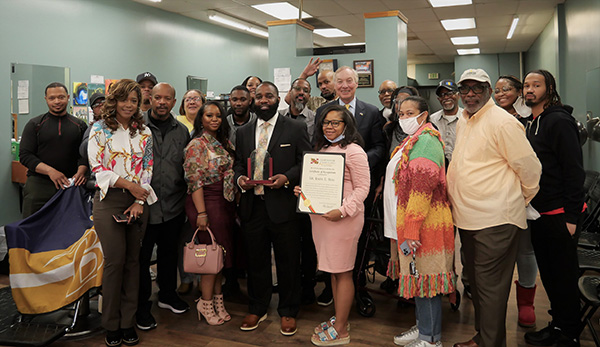
Click on the picture for larger view - Calvert County: Friends of Calvert County Seniors
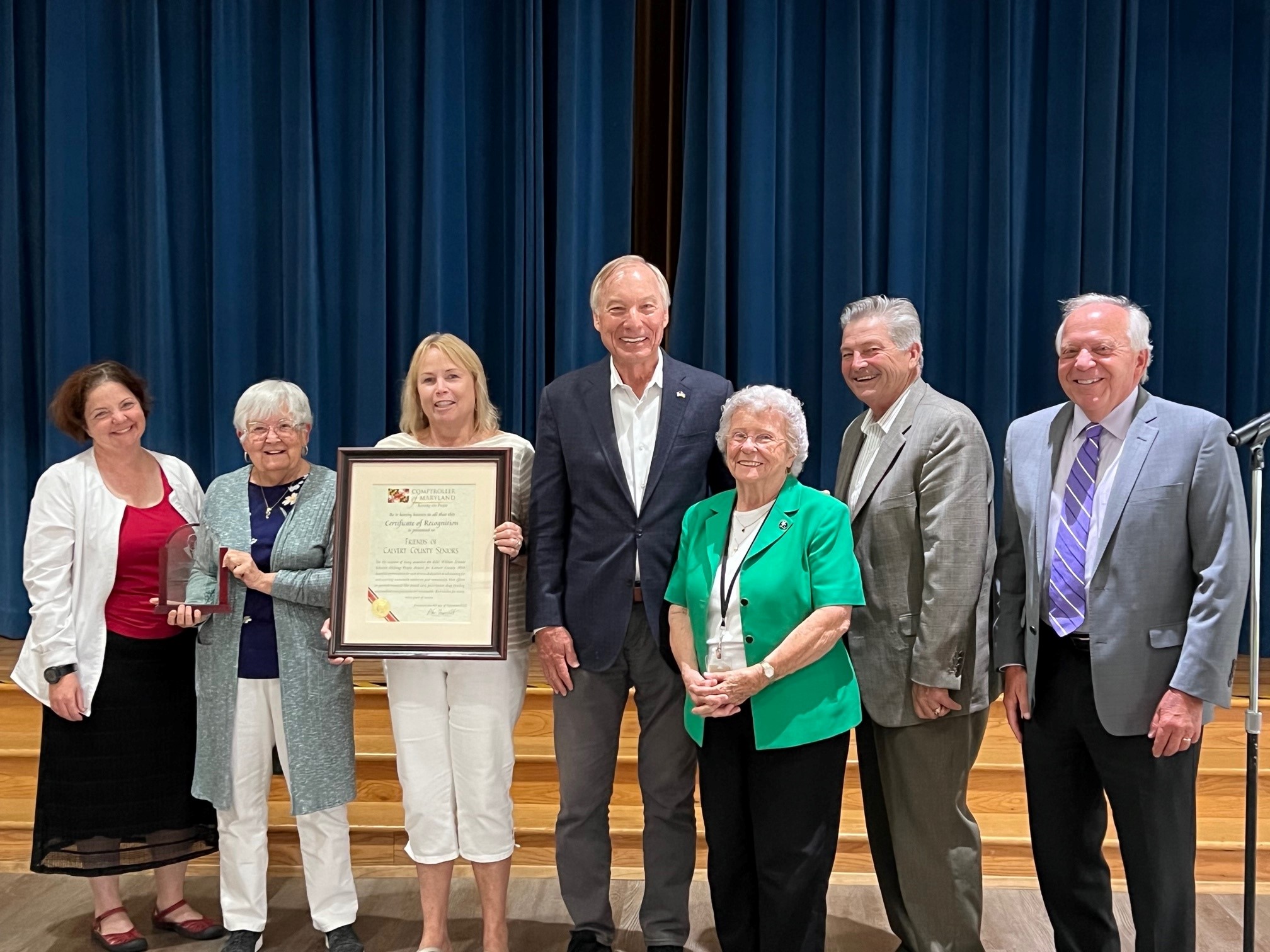
Click on the picture for larger view - Caroline County: His Hope Ministries
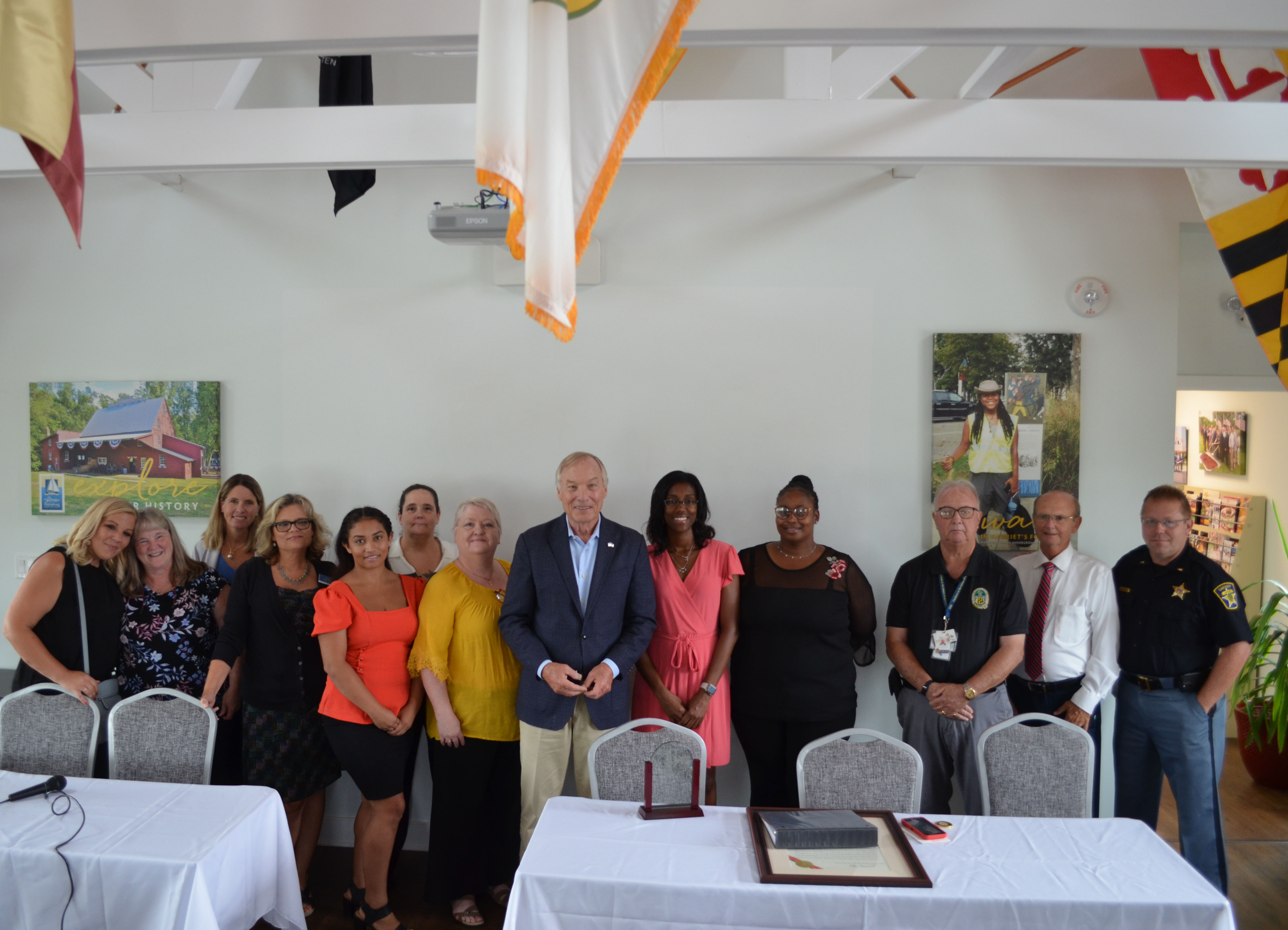
Click on the picture for larger view - Cecil County: Ant's Army
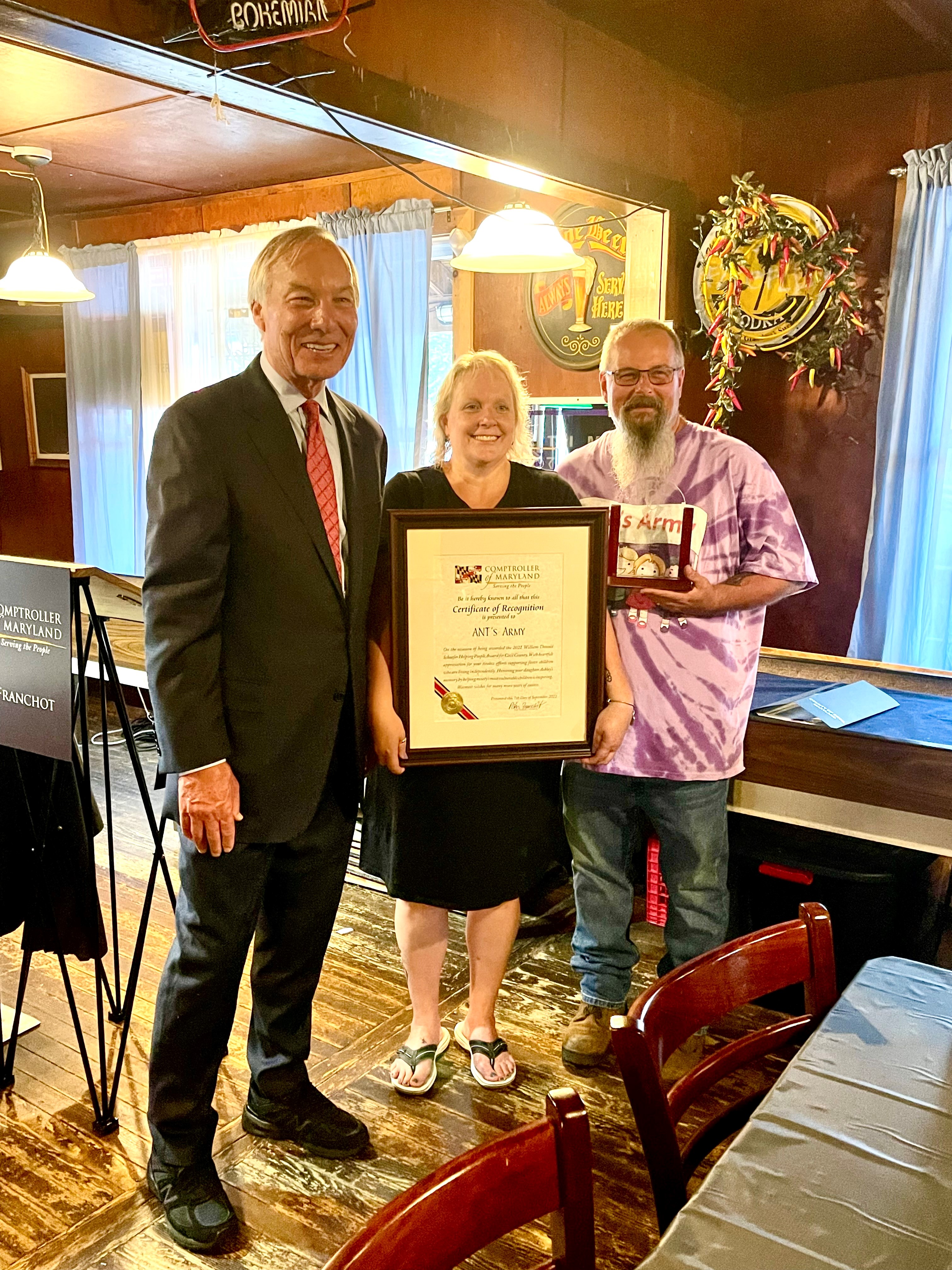
Click on the picture for larger view - Charles County: Last Chance Animal Rescue
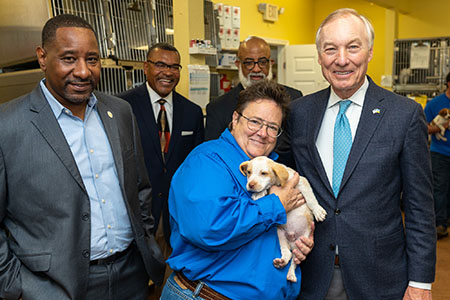
Click on the picture for larger view - Dorchester County: Harriett's House
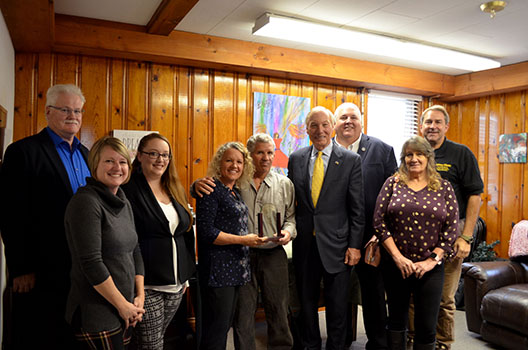
Click on the picture for larger view - Frederick County: Second Chances Garage
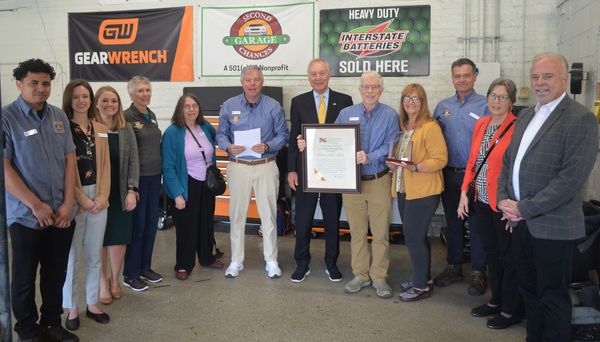
Click on the picture for larger view - Garrett County: Deep Creek Watershed Foundation
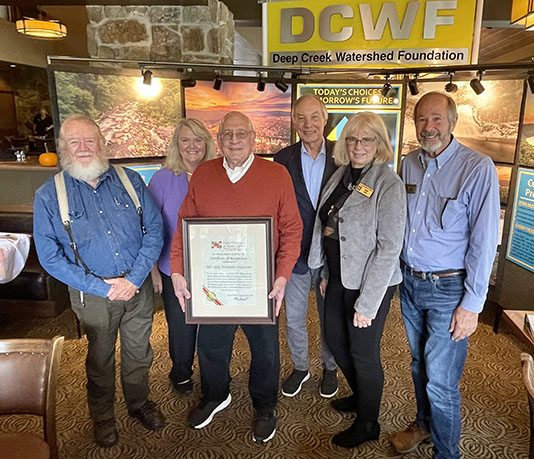
Click on the picture for larger view - Harford County: Rudy Williams, President of the Association for the Prevention of Sickle Cell Anemia, Inc. of Harford, Cecil & Eastern Shore Counties
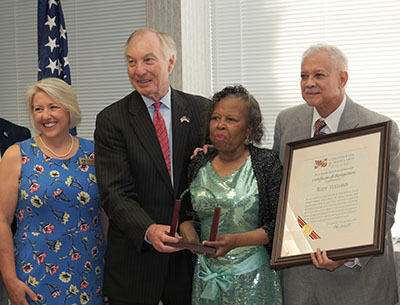
Click on the picture for larger view - Howard County: HoCo Pirate Adventures
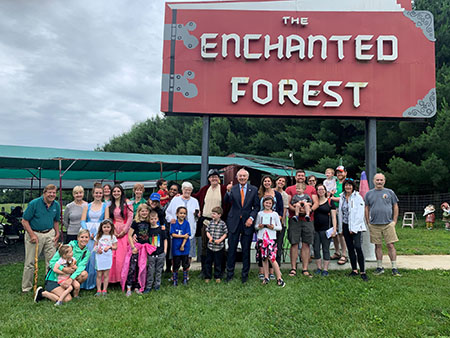
Click on the picture for larger view - Kent County: Paul Tue III
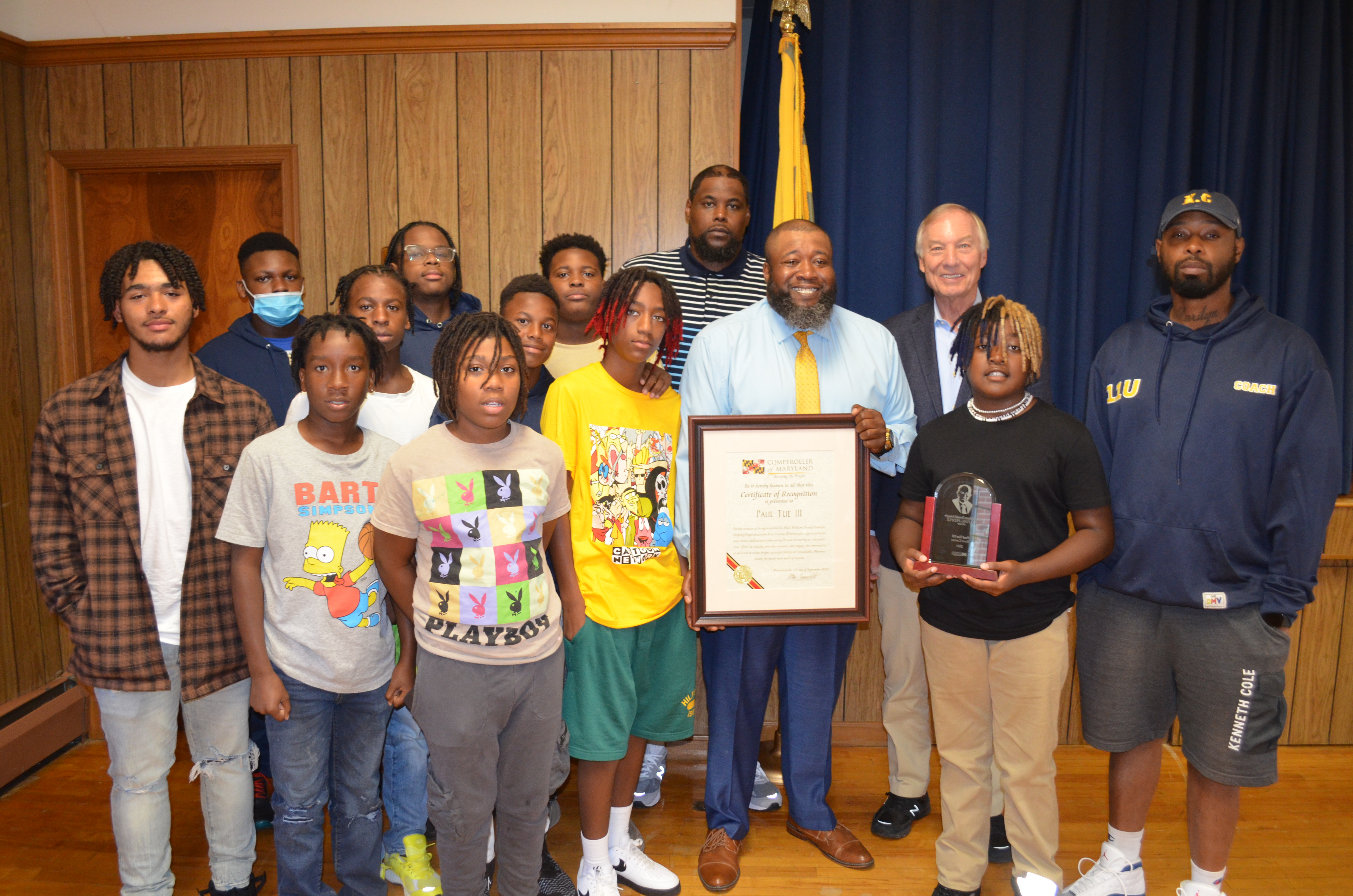
Click on the picture for larger view - Montgomery County: Dekeda Brown

Click on the picture for larger view - Prince George' County: PG Changemakers
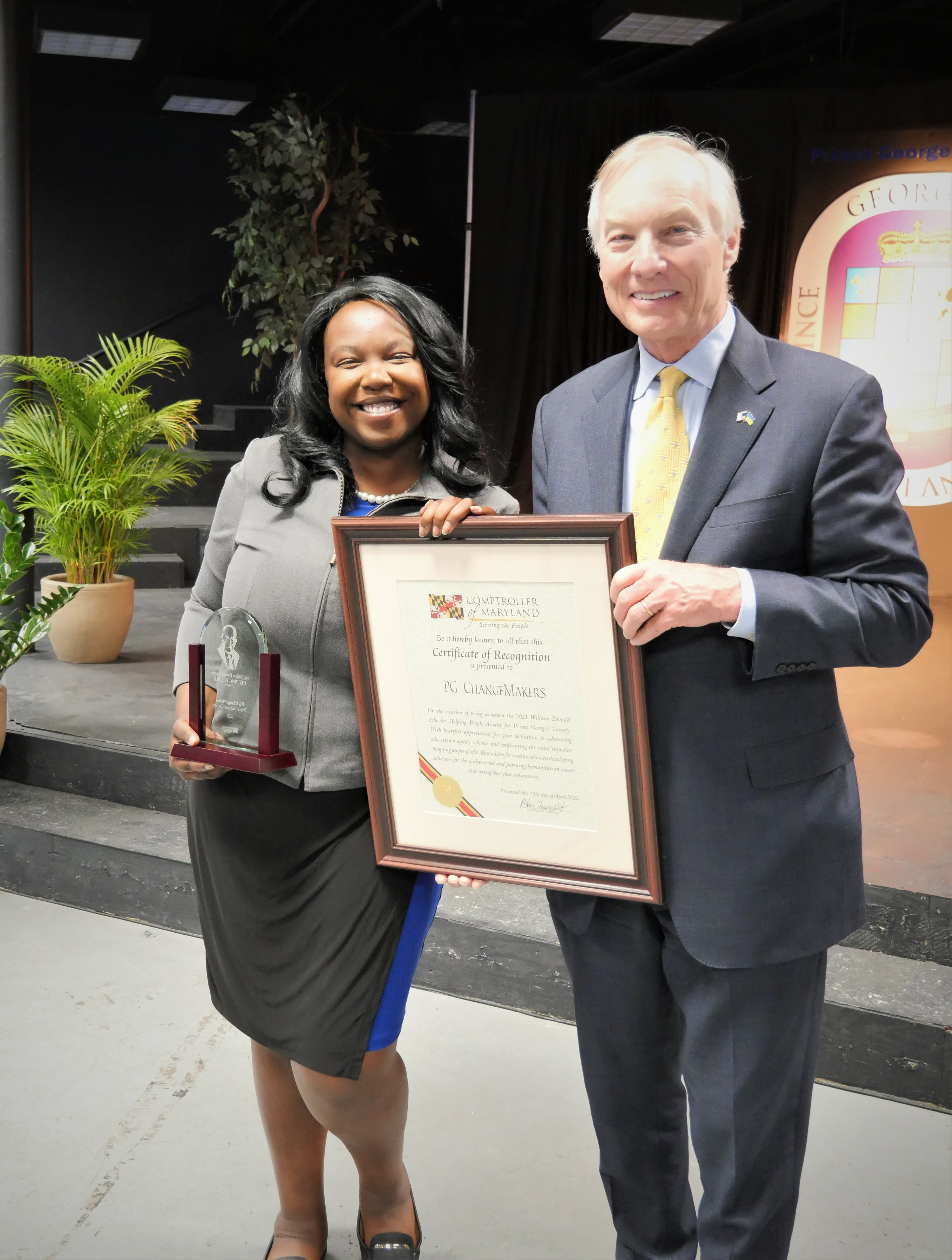
Click on the picture for larger view - Queen Anne' County: Not My Child QAC 2.0
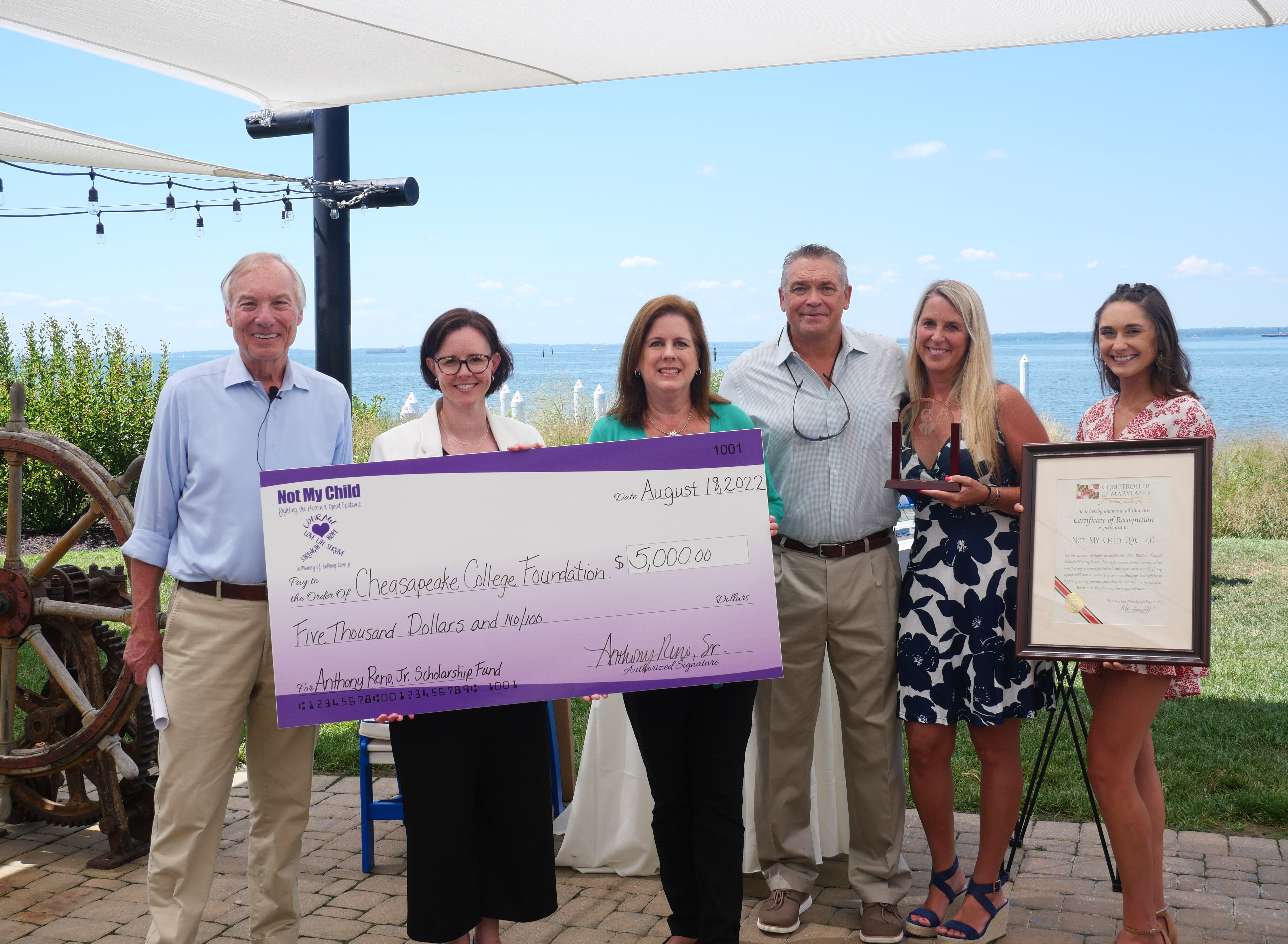
Click on the picture for larger view - St. Mary's County: Ann Kovalcik, Camp Maria Retreat
Click on the picture for larger view - Somerset County: Positive Reinforcements
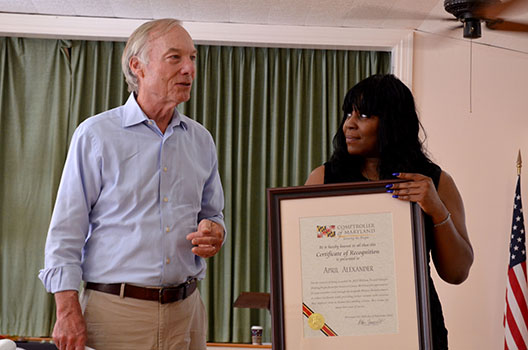
Click on the picture for larger view - Talbot County: Derick Daly/ Building African American Minds
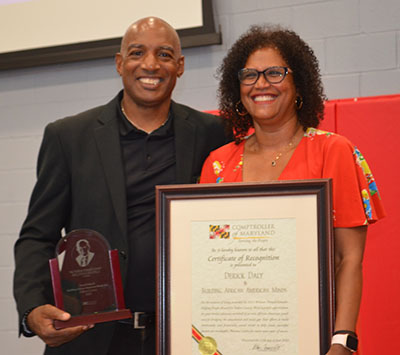
Click on the picture for larger view - Wicomico County: Women Supporting Women
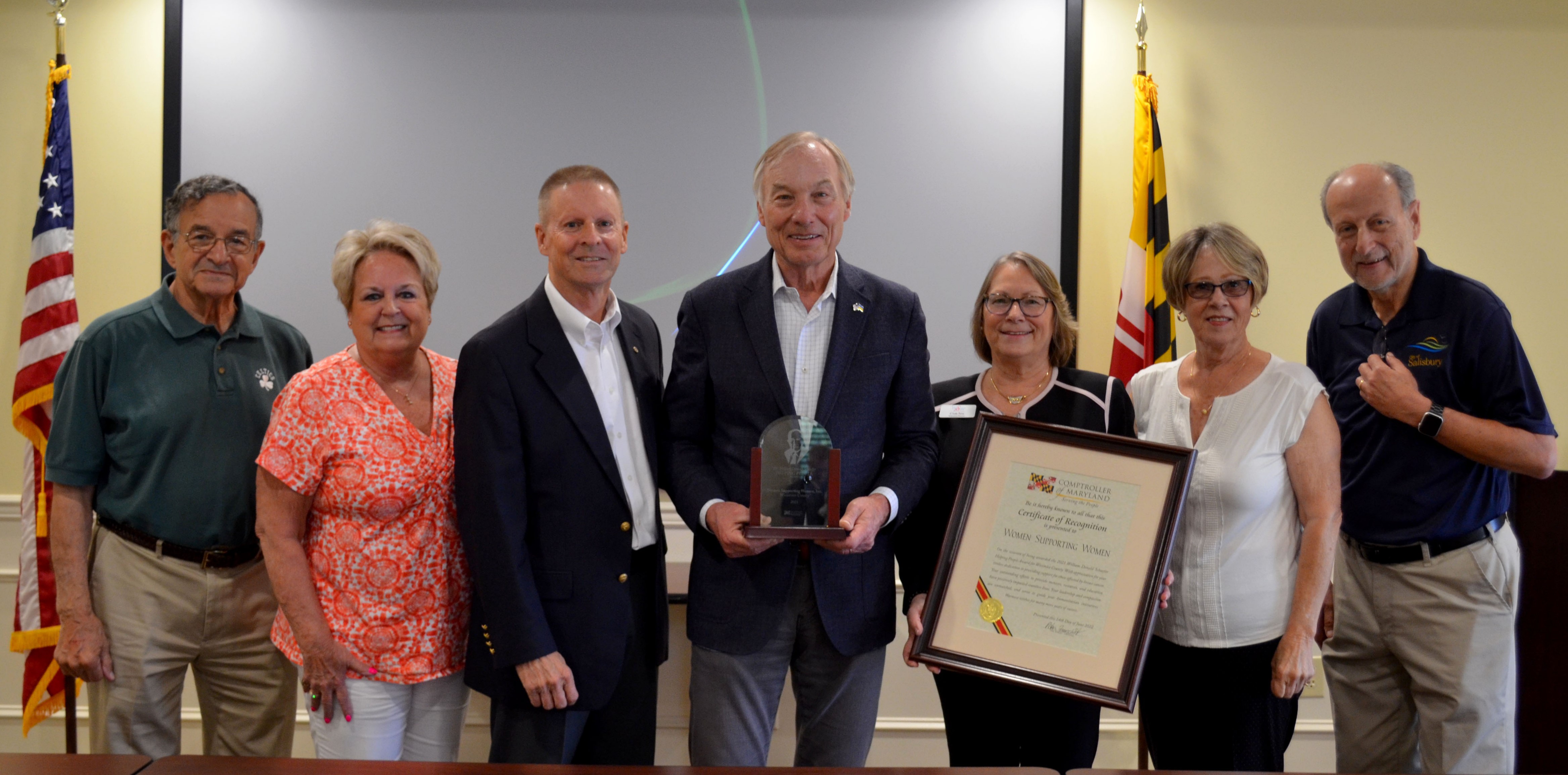
Click on the picture for larger view - Washington County: APPLES for Children
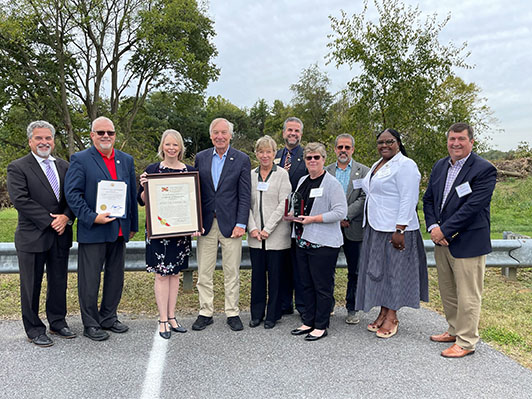
Click on the picture for larger view - Worcester County: Assateague Island Alliance
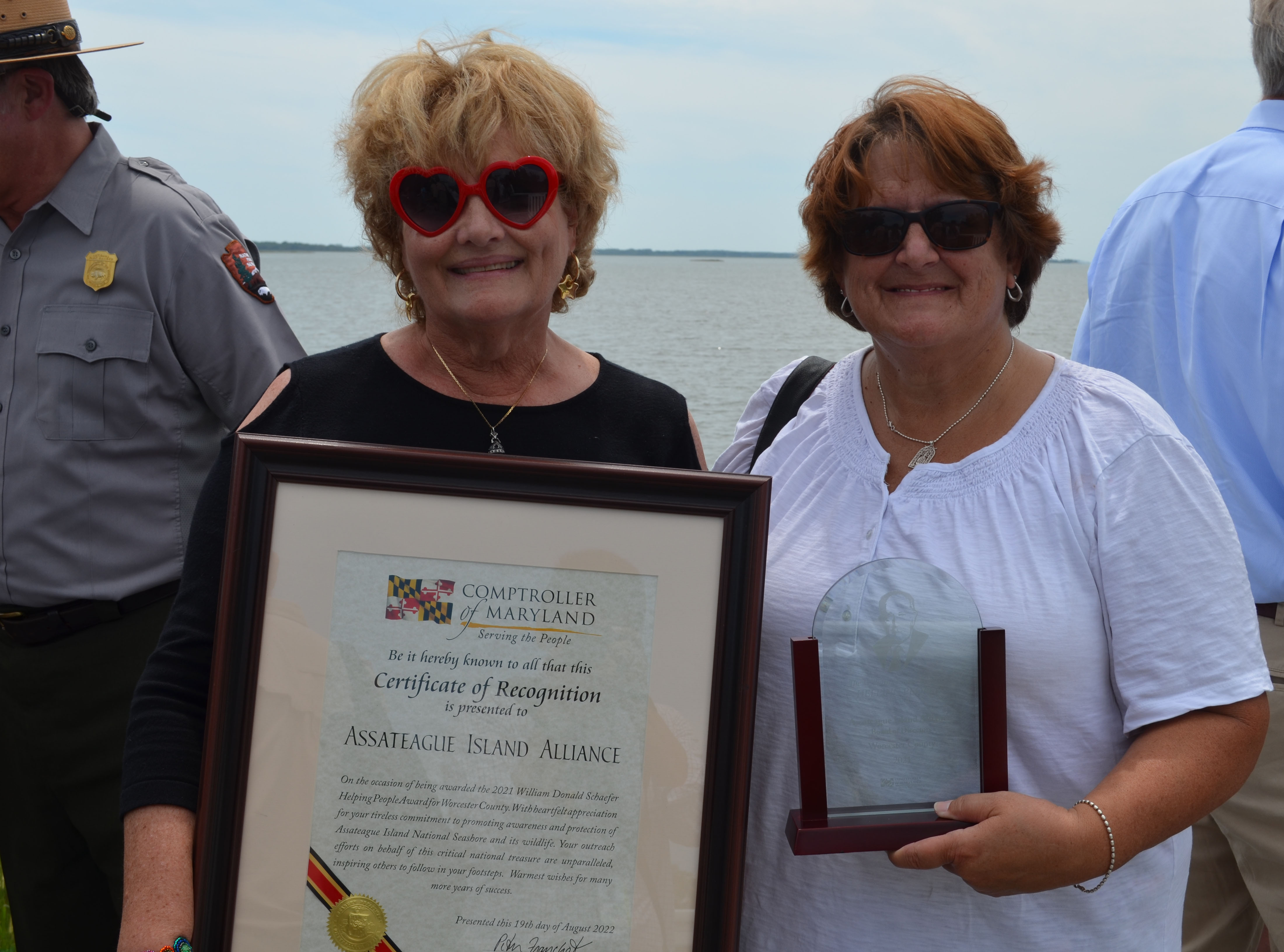
Click on the picture for larger view
- Northern Maryland:
- Baltimore City - Reading Partner Baltimore
- Baltimore County - George E. White
- Carroll County - Jameson Greenwood, Replay Hampstead
- Cecil County - Raymond Lynn
- Harford County - LASOS, INC.
- Central Maryland:
- Anne Arundel County - Monica Alvarado
- Howard County - Ronald Peters
- Montgomery County - Dr. Marissa Watts
- Prince George's County - Alexandria Briggs-Blake
- Southern Maryland:
- Calvert County: Heather Maerten
- Charles County: Joe Gressis
- St. Mary's County: Foundation 4 Heroes
- Eastern Shore:
- Caroline County: Choptank Community Health
- Dorchester County: Friends of Blackwater National Wildlife
- Kent County: Larry Wilson
- Queen Anne's County: Sharon Robinson
- Somerset County: Shawna Kearsley
- Talbot County: Trish Payne
- Wicomico County: Amber Green/ Fenix Youth Project
- Worcester County: Kim Klump
- Western Maryland:
- Allegany County: Mindy Wilkinson
- Frederick County: Hayden's Heroes
- Garrett County: HART for Animals
- Washington County: Rick Wilson, founder Farmers and Hunters Feeding the Hungry
Allegany County: Dorian Birkholz, Western Maryland MOM Dental Clinic, Virtual Presentation
Anne Arundel County: Burger & Bands For Suicide Prevention, Founders Ann & Ethan Brennan, Virtual Presentation
Baltimore City: Munir Bahar, COR Health Institute, Virtual Presentation
Baltimore County: Tyler Stallings, CEO Kid Time Enterprises, Virtual Presentation
Calvert County: Heart F.E.L.T., Founder Little Jack Woodford, Virtual Presentation
Carroll County: Pass Love Around, Founder Julia LeHew, Virtual Presentation
Caroline County: Judge Owen Wise, Virtual Presentation
Cecil County: Cecil Vets Honor Bus, Founder Susie Webster Campbell, Virtual Presentation
Charles County: Project Healing Waters Fly Fishing, Founder Capt. Ed Nicholson U.S. Navy (ret.), Virtual Presentation
Dorchester County: MidShore Meals Til Monday, Leslie Bishop Founder, Virtual Presentation
Frederick County: Debbie Williams Founder, Patty Pollatos Fund, Virtual Presentation
Garrett County: Phyllis Trickett, Virtual Presentation
Howard County: Food on the 15th, Founder Julie Rosenthal, Virtual Presentation
Montgomery County: Birthday Cakes 4 Free, Robert Wachen Co-Founder Virtual Presentation
Prince George's County: The Training Source, Inc., Founder E. Kim Rhim Virtual Presentation
Queen Anne's County: Amy's Army Holly Rhodes Co-Founder Virtual Presentation
Somerset County: Garland Hayward Youth Center, Founder, Garland Hayward, Virtual Presentation
St. Mary's County: Hits 4 Heroes, Founders Harry & Debbie Pool, Virtual Presentation
Talbot County: Talbot Paramedic Foundation, Co-Founder Wayne Dyott, Virtual Presentation
Washington County: Brookes House Kevin and Dana Simmers, Founders, Virtual Presentation
Wicomico County: Operation We Care, Jeff and Diana Merritt, Founders, Virtual Presentation
Worcester County: Adopt Your Beach, Founder Effie Cox, Virtual Presentation
List of last year's William Donald Schaefer Helping People Award Recipients.
Workgroup on Pandemic Spending
The Comptroller's Workgroup on Pandemic Spending, an agency-led panel that will conduct a comprehensive review of state and federal COVID-related spending has been formed. Resulting from language inserted into the Fiscal Year 2022 budget by the Maryland General Assembly following Comptroller Franchot's request for an independent review of pandemic-related spending, the workgroup will deliver a full inspection of how pandemic funds have been expended; determine if the funds went to intended recipients and populations most in need; examine disparities in distribution; and identify possible predatory fraud and pandemic profiteering.
The workgroup, chaired by the Comptroller, is composed of key agency leadership - the Deputy Comptroller, the directors of the Comptroller's General Accounting and Compliance divisions, and the directors of the Bureau of Revenue Estimates and the Office of Risk Management.
Working for Taxpayer Fairness and Convenience
Wayfair
On June 21, 2018, the United State Supreme Court ruled in South Dakota v. Wayfair that sellers can be required to collect sales taxes in states where the sellers do not have physical presence, overruling the Court's prior decision in Quill v. North Dakota. Now, out-of-state vendors must maintain records to determine whether they will be required to remit Maryland sales tax on retail sales for delivery into Maryland. Online sales transactions are subject to the State's 6 percent sales and use tax if the sale is made by a retailer who, either within the previous or current calendar year, made at least 200 sales transactions within the state, or the retailer earned at least $100,000 in gross revenue on sales in Maryland.
Compass
The COMPASS tax processing system is in the process of replacing the agency's State of Maryland Tax (SMART) system, Computer Assisted Collection System and other antiquated tax processing systems that operate on outdated, often-unsupported technology platforms. Highlights of the new system include improved fraud detection and prevention programs, increased ability for taxpayers to manage their accounts via online self-service applications, maximized audit, collection, reporting and estimating functionality, and overall increased system stability. Compass is to be implemented on a rolling basis over the next several years.
Tax Payer Protection Act
In 2017 the Tax Payer Protection Act (TPA) was signed into law giving the Comptroller more tools to combat increased fraudulent and predatory activity. The TPA placed greater legal responsibility on tax preparers to properly file returns and added a fraudulent return preparer financial penalty. It also extended police powers to the Comptroller's Field Enforcement Division (FED) to properly investigate and prepare cases of tax fraud for prosecution.
Brewery Modernization Act and Beer Franchise Law Reform
The Comptroller was instrumental in updating Maryland's antiquated beer laws which culminated in the Brewery Modernization Act and Beer Franchise Law Reform in 2019. Among the many changes, breweries are now able to sell 5,000 barrels of its own beer each year for on-premises consumption, instead of up to 2,000 or 3,000 barrels under specified circumstances and a brewery that obtains a Class 7 limited beer wholesaler's license is authorized to sell up to 5,000 barrels of its own beer annually, instead of 3,000 barrels. Additionally, brewers now only need to provide 45 days' notice to terminate a contract with their wholesaler and are not required to show any cause.
Comptroller Franchot created the Better With Less Award in 2011 to recognize the countless Maryland businesses innovatively operating at lower costs. The award was given to one business or organization in each of Maryland's 23 counties and Baltimore City and recognized organizations that achieved economic success while using less resources, used an innovative means to efficiently operate, identified a niche market in the current economic climate or provided new economic opportunities for local communities. More than 100 nominations were received.
Bright Lights AwardComptroller Franchot announced the Bright Lights Award in December 2016 to pay tribute to business and nonprofit leaders and organizations that foster innovation in their fields. The Bright Lights Award for Innovation and Entrepreneurship recognized and celebrated innovation in the private and nonprofit sectors that strengthened Maryland's economy, generated jobs and tax revenue and developed new ideas that more effectively delivered services and products within the marketplace. One winner was selected from each of Maryland's 23 counties and Baltimore City, and businesses or nonprofits of any size were eligible for the award.
Cool ClassroomsThe Comptroller established the Cool Classrooms initiative in 2012 to galvanize public support for installing air conditioning in all Baltimore County Public Schools. Historically, school systems around the state have faced the same issue and have been able to solve it with great success by installing portable air conditioning units, giving school systems time to install central air while keeping students and teachers comfortable.
End Montgomery County Alcohol MonopolyComptroller Franchot held a press conference on December 22, 2015 to announce the findings of a state Bureau of Revenue Estimates study on the economic impact of introducing private sector competition on alcohol sales and distribution in Montgomery County.
Golden Apple AwardThe Comptroller created the Golden Apple Award in 2012 to recognize outstanding volunteers, organizations and individuals within the Maryland public school system. Winners were selected on their demonstration of superior volunteer work in Maryland public schools. Countless numbers of men, women and organizations donate their time and resources to volunteer at public schools throughout the state, all without pay and sometimes without any recognition. This award provided the accolades these volunteers truly deserve.
Maryland Masters AwardThe Maryland Masters Award recognized public-school students who displayed extraordinary artistic skills, talents and a vision for Maryland's future. During the 2013-2014 school year, 55 students from 19 jurisdictions throughout the state took part in the program. The Comptroller selected students from each of Maryland's 23 counties and Baltimore City in grades K-12 to have a piece of original artwork on exhibit in the Comptroller's Office in Annapolis.
School After Labor DayIn August 2013, Comptroller Franchot released an economic development impact report on a post-Labor Day start for public schools. Completed by the Bureau of Revenue Estimates, the report found that a delayed school start in Maryland would result in an additional $74.3 million in direct economic activity, including $3.7 million in new wages and a separate $7.7 million in state and local revenue.
A citizen-led grassroots initiative to start public schools after Labor Day kicked off in August 2014 to give families more time together, small businesses an economic boost and teachers a much-needed break. More than 13,240 Marylanders signed the "Let Summer Be Summer" petition, far exceeding the 10,000-signature goal. It was presented to members of the Maryland General Assembly at the beginning of the 2015 legislative session.
The "Let Summer Be Summer" campaign resulted from a governor's task force which recommended in May 2014 that Maryland public schools delay opening until after Labor Day, while continuing to end the school year in early to mid-June. The state task force, which met for nearly a year to consider the issue, voted 11 to 4 in favor of a later start date statewide.
Governor Hogan signed an executive order on August 31, 2016 requiring all Maryland public schools to begin classes after Labor Day. The executive order requires Maryland public schools to start classes after Labor Day and to end the school year by June 15. The new policy began with the start of the 2017-2018 school year.
Silver Hammer AwardComptroller Franchot established the Silver Hammer Award in 2017 for schools that have demonstrated a commitment to fiscal responsibility through superior school maintenance. The Comptroller has seen many examples through his visits to public schools across the state where effective maintenance - including simple and affordable investments like a fresh coat of paint, new carpeting or a power washing - have made a world of difference. In addition to providing communities with a renewed sense of pride in their schools, research has confirmed the obvious and positive impact that clean, attractive and comfortable facilities have on student performance.
The R. Clayton Mitchell Jr. Award for Distinguished Public Service recognized past or current elected officials at all levels of government who exemplified Mitchell's spirit of public service, demonstrating strong leadership, humility and compassion for their communities. The former Speaker's son Clayton A. Mitchell Sr. partnered in the presentations with the Comptroller, offering personal insight into his father's tenure as a civil servant.
View the virtual ceremony.
List of Winners:
Allegany County: Casper Taylor
Anne Arundel County: Mary Ann Love
Baltimore City: Kurt Schmoke
Baltimore County: Paula Hollinger
Calvert County: Hagner Mister
Caroline County: Larry C. Porter
Carrol County: Julia Walsh Gouge
Cecil County: Ronald Guns
Charles County: William Eckman
Dorchester County: Adelaide Eckardt
Frederick County: Galen Clagett
Garrett County: Peggy Jamison
Harford County: Eileen Rehrmann
Howard County: C. Vernon Gray
Kent County: Wayne Gilchrest
Montgomery County: Ida Ruben
Prince Georges County: Gloria Lawlah
Queen Anne's County: Wheeler Baker
Somerset County: Daniel Long
St. Mary's County: John Wood Jr.
Talbot County: William S. Horne
Washington County: Charles "Skip" Kauffman
Wicomico County: Norman Conway
Worcester County: William "Gee" Williams III
Comptroller Peter Franchot has finished accepting nominations for a new award that defines Maryland's local business community and the winners have been chosen. The Cornerstone Award exemplifies the following attributes:
- This award recognizes small and family-owned businesses that celebrate the guiding values of independence, innovation and investment that define Maryland's local business community.
- The Cornerstone Award further celebrates businesses in the retail, agriculture, manufacturing, industrial and entertainment sectors -- that are part of the fabric of their community.
- The recipients have adapted to economic challenges, overcome the changing marketplace and evolved to meet customer demands, while showing a commitment to the community through sponsorships, community service, charitable giving and civic involvement/leadership.
- One business has been selected from each of Maryland's 23 counties and Baltimore City.
- Businesses of any sector and any size are eligible for the award.
2019 Cornerstone Award Recipients for Talbot County Teddy Bear Fresh
| List of Cornerstone Award Winners by County: | |
| Allegany | Lennox East |
| Anne Arundel | Homestead Gardens |
| Baltimore City | Eddie's of Roland Park |
| Baltimore County | Bengie's Drive-In |
| Calvert | Patriot Construction |
| Caroline | Preston Ford |
| Carroll | Simmons Homemade Ice Cream |
| Cecil | Purnell Body Shop |
| Charles | SMECO |
| Dorchester | Emily's Produce |
| Frederick | Frederick Shell Carwash |
| Garrett | High Mountain Sports |
| Harford | Music Land |
| Howard | Clark's Elioak Farm |
| Kent | The Bookplate |
| Montgomery | Tastee Diner |
| Prince George's | Franklin's Brewery, Restaurant and General Store |
| Queen Anne's | Fisherman's Inn |
| Somerset | MeTompkin Oyster Company |
| St. Mary's | Towne Florist |
| Talbot | Teddy Bear Fresh |
| Washington | Krumpe's Do-Nuts |
| Wicomico | Jolly Roger Amusement Park |
Citing a growing number of reports about serious illnesses, lung disease and deaths that are attributable to vaping, Comptroller Peter Franchot announced the creation of a task force to examine the public health and safety implications of electronic smoking devices (ESD). Members will represent local and state government, public health institutions, public health and safety experts, Maryland businesses, industry representatives, and the education community. This new task force - titled "e-facts" - will convene later this fall and will continue into early 2020. The task force directives will be:
- To achieve a better understanding of the nature and characteristics of ESDs, including the distinctions between various products within the marketplace;
- To gain a comprehensive picture of the public health and safety of ESDs and commercial effects of product sales in Maryland; and,
- To recommend new and stronger laws to ensure that consumers - particularly young people - are protected.
Resources
- FINAL E-Facts Report
- Task Force Membership List
- Task Force Meeting Schedule
- Suggestions for e-facts Task Force Recommendations
January 27, 2020
- County Departments of Health - Tobacco Enforcement
- Handley - Legislative Update
- Hucker - The Vaping Epidemic
January 9, 2020
- JH presentation re FDA Action
- Dodson- MMCC Vape Testing
- Jaspers E-Facts
- Ward eFACTS
- Lam Vaping and Public Health
- Mitchell MDH Vaping Task Force
December 3, 2019
About the Reform on Tap Act of 2018
Citing the significant economic, fiscal and community contributions of Maryland's craft brewers and the industry's immense potential, Comptroller Peter Franchot has submitted legislation for consideration during the 2018 Maryland General Assembly Session that would fundamentally reform the antiquated laws and burdensome regulations that govern the state's craft breweries.
The Reform on Tap Act of 2018 proposes the following:
- Removes all limits on beer production, taproom sales and take-home sales;
- Repeals the "buy-back" provision that requires brewers to purchase their beer from distributors at a marked-up cost if they exceed the 2,000-barrel limit on taproom sales.
- Lifts unnecessary restrictions for take-home sales;
- Guarantees the issuance of Class B or D beer licenses to microbreweries upon request;
- Lets local jurisdictions set guidelines for taproom operating hours;
- Allows smaller brewers to self-distribute;
- Eliminates franchise law requirements; and
- Removes restrictions on contract brewing that inhibits start-up businesses.
The legislation reflects the findings of the Comptroller's Reform on Tap Task Force, which held eight meetings during this summer and fall to get a better grasp of the state's current laws and the challenges and opportunities that lie ahead for craft brewers. The 40-member task force represented every region in the state and industry stakeholders including brewers, distributors, retailers, consumers and lawmakers from both parties.
An economic impact study conducted by the Bureau of Revenue Estimates found that in Maryland, the craft beer industry had an overall economic impact of $802.7 million and supported or created 6,541 jobs in 2016. The industry contributed nearly $110 million in local, state and federal revenues, which directly supports investments in education, public safety, transportation and the environment.
Still, the state is a net importer of craft beer, meaning it consumes more (275,000 barrels) than it produces (247,000 barrels). Furthermore, the National Brewers Association ranked Maryland 47th in economic impact, 36th in number of breweries and 25th in gallons produced per adult aged 21 years and over ? all indications that the state's craft beer industry has plenty of room to grow if the arbitrary restrictions currently in place are lifted.
More information about the Comptroller's legislation can be found in the documents below.
Reform on Tap Task Force Archival Materials
In response to the passage of House Bill 1283 during the 2017 Legislative Session and with the goal of modernizing Maryland's beer laws and promoting economic growth across the State, Comptroller Peter Franchot established "Reform On Tap" Task Force in April 2017.
The task force, chaired by Comptroller Franchot, was composed of 40 members representing key stakeholder groups within the beer industry, and conducted a comprehensive review of the State's antiquated laws that govern the manufacturing, distribution, and sale of Maryland craft beer.
The Task Force held 8 public meetings and 2 town hall meetings across the state. Video proceedings of Task Force meetings can be found in the Task Force's official Facebook page.
Meeting Documents
The following are documents and materials that were distributed during task force meetings.
May 24, 2017
- Agenda
- PowerPoint Presentation by Jeffrey Kelly, Director of the Comptroller's Field Enforcement Division. Topic: Maryland's Beer Laws: Overview and Historical Perspective
- Handout materials from Pete Johnson, manager of state and regulatory affairs, National Brewers Association. Topic: Maryland's Craft Beer Environment: A National Perspective
- PowerPoint Presentation by Kevin Atticks, Executive Director of Brewers Association of Maryland; Allison Burr-Livingstone, Vice President of Public Affairs, Visit Baltimore; and Mayor Jake Day of Salisbury, MD. Topic: Why It Matters: The Economic Impact of Maryland's Craft Beer Industry
June 7, 2017
- Agenda
- Comparative Charts of Neighboring States Manufacturing Laws:
June 22, 2017
- Agenda Presentation by Jeffrey Kelly, Director of Field Enforcement, Office of the Comptroller
- Presentation by Lester Jones, Chief Economist for the National Beer Wholesalers Association
July 20, 2017
August 15, 2017
- Agenda
- Discussion Questions
- Comparative Charts for Distribution Laws
- August 7-11, 2017 Consumer Survey
September 6, 2017
- Agenda
- Discussion Questions
- Presentation by John Bodnovich, Executive Director, American Beverage Licensees
October 25, 2017
- Agenda
- BRE Study of Economic Impact of Maryland's Craft Beer Industry
- Comparative Charts: Craft Beer Economic Impact in Maryland and Neighboring States
The Economic and Fiscal Impact of Maryland's Craft Beer Industry - Special Report: The New York Experience and Lessons Learned
- Best Regional Practices
November 8, 2017
Baltimore City Lawyer and Politician, Democrat
1999-2007
William Donald Schaefer served in public office for more than 50 years. He was governor of Maryland (1987-1995); mayor of Baltimore City (1971-1987); president of the Baltimore City Council (1967 to 1971); and member of the Baltimore City Council (1955-1967). In 1998, he was elected the 32nd comptroller of Maryland and re-elected in 2002. During his two terms as comptroller, Schaefer expanded online services to individuals and businesses, initiated an aggressive tax law enforcement campaign and introduced several cost-saving efficiencies. He also recouped nearly $200 million for the state in 2004, by closing a frequently used tax loophole that allowed companies to shelter income. Long known as a tireless advocate for the needy, Schaefer also expanded and encouraged employee participation in more than 25 charity and outreach endeavors during his tenure as comptroller.
Calvert County native and Government Employee
Comptroller - 1998-1999
A 37-year veteran of the Maryland Comptroller's Office, Swann joined the Alcohol and Tobacco Tax Division in 1961 and became an assistant to Comptroller Goldstein in 1966. He was appointed a deputy comptroller after a department reorganization in 1994. Because of his widely recognized expertise in state government, Swann was appointed Comptroller, after the 1998 death of Comptroller Goldstein, and served until a new Comptroller was elected.
Prince Frederick (Calvert County) Lawyer and Politician, Democrat
Comptroller - 1959-1998
Goldstein was the longest serving statewide elected official in America. His name was synonymous with the Comptroller's job. His accomplishments were legendary. During the civil rights struggle, Goldstein and Maryland were leaders in equal opportunity almost a decade before the federal government. He was the thoroughly professional administrator of billions of dollars for roads, schools and hospitals under seven governors. He was an unflagging booster of Maryland's history, culture and tourism. Goldstein was rightly proud of the state's consistent AAA bond rating. Under his leadership, the Comptroller's Office was an international leader in the application of technology to financial record keeping.
Baltimore City Businessman, Democrat
Comptroller - 1947-1950
Lacy was brought especially into the Governor William Preston Lane administration to help institute Maryland's first retail sales tax. He had the thankless task of successfully implementing one of the most unpopular taxes in Maryland history. In 1950, this able young Comptroller died suddenly of a heart attack at the age of 46.
Crisfield (Somerset County) Banker, Democrat
Comptroller - 1939-1947 and 1950-1959
Tawes was an important player in state government for more than three decades, an era marked by devastating war and unheard of growth and prosperity. After World War II, the Maryland state budget increased from $60 to $219 million in just six years. Tawes was a master of budget detail and a political insider. He was the only Marylander elected to all three major state offices; comptroller, treasurer and governor.
Salisbury (Wicomico County) Banker, Democrat
Comptroller - 1922-1939
Gordy, a self-described by-the-book businessman, was Maryland's first professional Comptroller, serving a then record of almost two decades. From the first gas tax in 1922 to the first income tax in the late 1930s, he ran the Comptroller's Office efficiently through the biggest economic swings in American history.
Montgomery County Lawyer, Democrat
Comptroller - 1920-1922
A war hero in World War I, Major Lee was a member of an influential Montgomery County family and found himself elected Comptroller right after his return from the fighting in France. In his short tenure, the new Central Purchasing Bureau was part of the Comptroller's widely expanded role. Lee also helped create a new budget department headed by the Comptroller. After going into the private real estate business, he was elected to the House of Delegates and served Maryland Governor Ritchie in several capacities. Later in life, he became a nationally recognized breeder of Polled Hereford Beef Cattle.
Allegany County Miner, Merchant and Banker, Democrat
Comptroller - 1916-1920
Western Maryland's one representative in the Comptroller's office, Mc Mullen was a highly successful local businessman. He was a miner and a prospector in Colorado for a time. Returning home, he and two brothers became merchants and opened the first department store in Cumberland, the town's first bank, and two coal mines, one in West Virginia and another in Kentucky. As Comptroller, McMullen was best remembered for getting Marylanders to concentrate on emergency needs created by World War I.
Dorchester County Teacher and Lawyer, Democrat
Comptroller - 1912-1916
Harrington was a very successful student and tutor at St. John's College before serving as principal at Cambridge Academy and High School for more than a decade. He went on to the law and was Dorchester County state's attorney for one term before rising to state office first as Comptroller and then governor (1916-1920) during World War I. After a bitter campaign in 1915, Governor Harrington organized the successful Council of Defense which effectively addressed wartime problems and built Camp (Fort) Meade. He sought a more efficient state government and a new budget system, reluctantly supported the right of women to vote as well as the movement to prohibit alcohol, a controversial issue in the Free State. After leaving office, Harrington returned to Cambridge to his law practice and local business for more than 20 years.
Prince Georges County Lawyer, Democrat
Comptroller - 1911-1912
The last bearded Comptroller, Stanley represented an earlier generation and had fought for three years as a private in the Confederate army. Originally from Connecticut, he had an active and varied career in his adopted Maryland as a farmer, state delegate, mayor of Laurel, banker and director of the B&O Railroad and the Maryland Agricultural College. Stanley was appointed Comptroller to finish the term of William B. Clagett who died in office.
Prince Georges County Farmer, Democrat
Comptroller - 1910-1911
William Baruch Clagett was a farmer in Upper Marlboro, Maryland. His farm, "Navajo," is still operated today by the eleventh generation of the family. In 1892, Governor Frank Brown appointed Clagett tobacco inspector. He was chair of the Democratic State Central Committee, and candidate for clerk of the circuit court. He was elected state senator from Prince George's County in 1897 and served from 1898 to 1901 and again from 1906 to 1910. In June of 1910, he was appointed comptroller of the treasury by Governor Austin L. Crothers to replace Joshua W. Hering who had been appointed to the Public Service Commission. As comptroller, Clagett was also a member of the Board of Public Works. He suffered from kidney disease and died in office July 25, 1911. Clagett was also a vestryman at Trinity Protestant Episcopal Church, Upper Marlboro, where his body was interred.
Crisfield (Somerset County) Physician, Democrat
Comptroller - 1904-1907
As an active participant in the Crisfield seafood boom of the late 1800s, Dr. Atkinson ran a medical practice along with a drug store, an ice manufacturing plant and a bank in the downtown area. He served as Comptroller for one term and afterwards returned to a busy career in his native lower Eastern Shore.
Frederick and Carroll Counties Physician and Banker, Democrat
Comptroller - 1900-1904 and 1907-1910
An active and public-spirited member of his community, Hering began his statewide career as a senator representing Carroll County. He became Comptroller soon after for two separate terms during the Progressive Era, when government, led by President Theodore Roosevelt, began to take a greater role in daily life. During Hering's tenure, Maryland was successfully sued to insure that funding for schools was equitable for blacks as well as whites. Hering was also involved in a groundbreaking Supreme Court case that forced the Northern Central Railway to pay higher taxes administered by a state law that the railway claimed was unconstitutional. Dr. Hering's office took credit for "upgrading buildings, building good roads, lowering taxes and reducing state debt." Hering finished his state career as a member of the Public Service Commission, a new agency established to regulate public service companies in Maryland.
Dorchester County Lawyer, Republican
Comptroller - 1898-1900
One of a half-dozen Comptrollers who were also governors, Goldsborough was a fixture in Maryland politics for 50 years, often as the loyal opposition to Democratic administrations. As a young Cambridge state's attornery, Goldsborough was chosen by Republican Governor Lloyd Lowndes to successfully run for Comptroller. From that first state office, he went on to serve first as Governor (1912-1916) and then U.S. Senator (1929-1935), an office he had first run for 30 years earlier. President Franklin Roosevelt chose him to serve on the Federal Deposit Insurance Corporation from 1935 until his death.
Wicomico County Lawyer, Republican
Comptroller - 1896-1898
One of two Republicans in a long line of Democrats, Graham was active in Salisbury politics before becoming Comptroller. After more than a decade as a state tax commissioner, Graham was appointed Secretary of State by Governor Phillips Lee Goldsborough in 1912 and sought road improvements, tax reform and uniform election laws.
Kent County Lawyer, Democrat
Comptroller - 1892-1896
A clerk of the Kent County Court and a state's attorney, Smith was known for his hardline about oyster piracy on the Chesapeake Bay. In 1890, he refused to pardon two watermen who had fired on a state vessel.
Frederick County Lawyer and Farmer, Democrat
Comptroller - 1888-1892
As a youth, "Vic" Baughman was caught up in war fever and served in the Confederate cavalry, remaining noted for his horsemanship throughout his life. As an editor of the Democratic Frederick Citizen, he ran unsuccessfully for Congress, but was elected Comptroller. Baughman had strong political allies and was the Democratic leader of Frederick County, called the "Napoleon of Western Maryland." He managed the C&O Canal, the B&O Railroad and the regional Electric Railway. A notorious episode during his tenure as Comptroller was the embezzlement of state funds by Treasurer Stevenson Archer. Baughman was also involved in settling the substantial debts incurred by Maryland during the fighting of the Civil War.
Talbot County Lawyer, Democrat
Comptroller - 1884-1888
Turner began his career as a register of wills and clerk of the Talbot County Courts. When he became Comptroller, Turner continued the trend to reduce the state debt and run the office in a more professional manner. He was heavily involved in continuing efforts to extricate the state from ill-fated investments in canals and railroads. He also focused on managing the state fleet against the criminal excesses of the oyster pirates. In his later career, Turner took an active interest in the commercial success of the town of Easton.
Queen Anne's County Lawyer, Newspaper Editor and Banker, Democrat
Comptroller - 1878-1884
Keating was a strong supporter of states' rights. Before the Civil War, he purchased the Centreville Sentinel and changed its name to the Centreville States Rights. During the passions of the war, the Eastern Shore Unionist "Home Guards" burned his newspaper office to the ground in 1864. During and after the war, Keating served as Queen Anne's County state's attorney until his election as Comptroller. During his long tenure, Keating was respected as a good financial manager and worked hard to "retrench and reform" state finances, including reducing the debt. When he left office to become a banker and later a tax commissioner, the Maryland financial picture was said to be in a "healthy condition."
Princess Anne (Somerset County) Lawyer, Farmer and Banker, Democrat
Comptroller - 1870-1878
Clerk of the Somerset County Court from 1851 to 1869, Woolford served as Comptroller for two terms. He later was a state tax commissioner, founder of the Somerset County Savings Bank and influential vestryman in the Protestant Episcopal Church.
Worcester (now Wicomico) County Lawyer and Merchant, Whig, Republican and Democrat
Comptroller - 1867-1870
Whig Maryland Delegate and grain and lumber merchant in the 1850s, Leonard was a Union colonel in the Civil War and served time as a prisoner in Richmond's Libby Prison. At the end of the war, he served as a provost marshal on the Eastern Shore and as an 1864 Republican elector for Lincoln. By 1867, Leonard had returned to the Democratic fold, serving as the first Comptroller under the 1867 Constitution that welcomed Democrats back into Maryland politics and abolished the loyalty oath to the Union.
Caroline County Lawyer, Unionist and Republican
Comptroller - 1864-1867
Jump had been a clerk of the Caroline Court for two decades when he was brought in to serve as the final Civil War Comptroller. Later he became a state's attorney and register of wills in his native county.
Talbot County Lawyer, Whig, Democrat, Unionist and Republican
Comptroller - 1817-1899
A veteran state politician for a quarter of a century and a Union soldier, Goldsborough was brought in to finish the term of deceased Comptroller Samuel Maffit. He soon became the leader of the successful effort to amend the constitution in 1864. The new document that abolished slavery and punished supporters of the South was replaced in only three years. Goldsborough then became a Republican circuit court judge. After an unsuccessful bid for Congress, he ended his career as the appraiser of the Port of Baltimore.
Cecil County, Democrat and Unionist
Comptroller - 1862-1864
Maffit was Comptroller in the Governor Augustus Bradford Unionist war administration but did not support the abolition of slavery. His service to the Union was cut short by his untimely death in 1864 of consumption almost a year before the end of the war.
Harford County Lawyer, Democrat
Comptroller - 1861-1862
Jarrett, a Harford County court clerk, won the disputed 1861 Comptroller election when the Southern leaning House of Delegates declared him the winner after William Purnell won more votes with questionable tactics in Baltimore. Governor Henry Hicks, determined to keep Maryland in the Union, appointed Dennis Claude as his own loyal Comptroller. For a few months in 1861, two competing Comptrollers, Jarrett and Claude, set up shop in downtown Annapolis. The courts decided that the House of Delegates had the jurisdiction to determine Jarrett the winner, but he only served three months before being replaced by another election in January of 1862.
Anne Arundel County Military Surgeon
Comptroller - 1861
With a distinguished career as a War of 1812 military surgeon, Maryland politician, and mayor of Annapolis for four decades, 79-year-old Claude was appointed Comptroller for a few months during the 1861 war crisis. Governor Henry H. Hicks brought in Claude to prevent Abram Jarrett from taking office. Jarrett was the choice of a legislature that supported Maryland secession to the southern Confederacy.
Worcester County Lawyer, Whig, Know-Nothing, Unionist and Democrat
Comptroller - 1856-1861
After serving as a trial lawyer, Purnell's career as Comptroller was notable for the disputed 1861 election. Purnell won the election with "riots and frauds" in Baltimore, but resigned to serve as a postmaster and then a Union general early in the Civil War. Prevented from entering post-war politics, he became a college president in Delaware and then in Frederick and New Windsor, Maryland.
Baltimore City Lawyer, Democrat
Comptroller - 1854-1856
Whyte held nearly every Maryland elective office and was known as the Old Line State's "Grand Old Man." As the third Comptroller, he was credited with a simplified system that demonstrated the "wisdom of the Constitution in providing the safeguard to the Treasury." In the 1870s, he served both as Governor and U.S. Senator and went on to finish his career as the Baltimore City Solicitor as well as completing a third term in the U.S. Senate.
Queen Anne's and Talbot Counties Newspaper Editor, Democrat
Comptroller - 1853-1854
An influential newspaper editor of the Centreville Times and later the Easton Star, Bateman was the second Maryland Comptroller. After the Civil War, he led a Talbot County delegation that helped successfully overturn the wartime Union constitution with a new document in 1867.
Easton (Talbot County) Lawyer, Democrat
Comptroller - 1851-1853
As Maryland governor (1848-1851), the Thomas administration was instrumental in a new constitution that created the elected office of "Comptroller of the Treasury" in 1851. He was the first Comptroller and set up the office in 1851 with one clerk and an annual salary of $2,500. After serving as U.S. Secretary of the Treasury on the eve of the Civil War, he became a Confederate sympathizer and retired from public life. After the war, Thomas was prevented from becoming a U.S. senator, but later served in both the U.S. House of Representatives and the Maryland House of Delegates.
